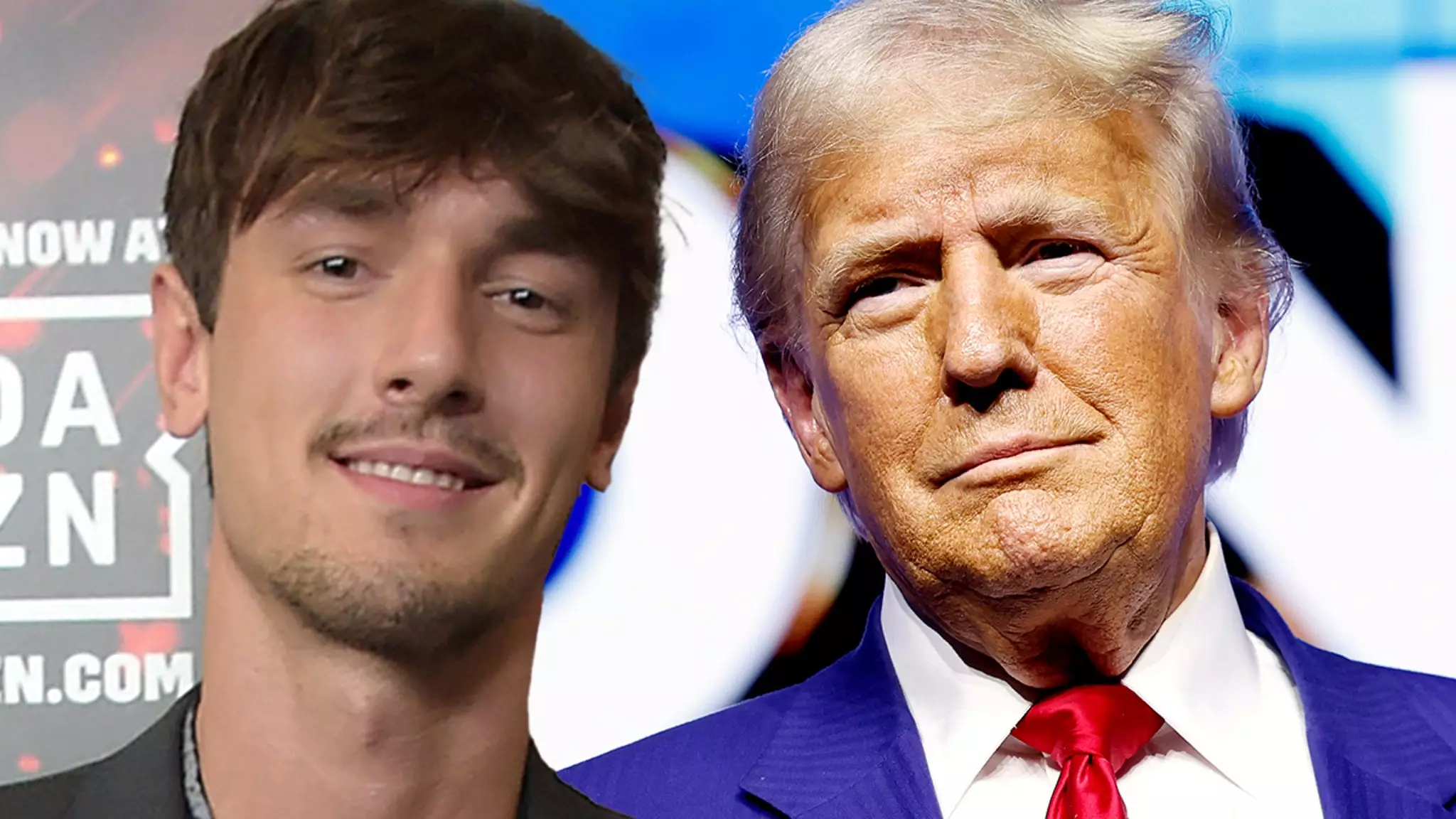In an era where social media shapes public opinion and political landscapes, influencers wield significant power. Bryce Hall, a prominent TikTok star, has emerged as a prime example of how digital personalities can intersect with traditional politics. His recent aspiration to collaborate with Donald Trump, now the president-elect, exemplifies this unique relationship. Hall recognizes the potential influence of social media in enhancing a political figure’s outreach, particularly among the younger generation, which is increasingly vital for electoral success.
Bryce Hall’s connections within Trump’s orbit unveil a fascinating reality of modern political campaigning. Having interacted closely with Trump’s team, primarily through his friend Blake Wynn—an insider with familial ties to a well-known casino magnate—Hall’s influence has roots in personal relationships. This proximity to power offers him a unique platform to advocate for political figures. His two in-person meetings with Trump illustrate a trend where social media stars gain traction and proximity to political leaders, thereby creating pathways for informal yet impactful collaborations.
The pivotal moment came during a campaign rally, where Trump himself suggested creating a video together to leverage Hall’s expansive reach. The notion that the president-elect can benefit from Hall’s nearly 24 million followers on TikTok reflects a deep understanding of digital culture and the importance of relevance in contemporary political discourse. This exchange is not just casual banter; it highlights an emerging strategy where traditional political figures seek to harness the power of influencers to remain culturally significant and engage younger voters.
As seen in Trump’s victory speech, the acknowledgment of influencers like Hall is indicative of a savvy recognition of social media’s role in modern campaigning. Names like Adin Ross and Joe Rogan have cultivated enormous platforms that can potentially sway public sentiment and amplify political messages. The shift from traditional media endorsements to influencer shout-outs signals a transformation in how political candidates approach outreach, with a focus on authenticity and relatability that younger audiences crave.
For Bryce Hall, supporting Trump amidst the polarizing climate of contemporary politics is a significant risk. He candidly recognizes this gamble, but frames it as an essential undertaking for the larger good. This sentiment suggests that influencers are willing to navigate challenging landscapes for reasons beyond personal gain—whether it’s shaping conversation, advocating for specific polices, or simply engaging audiences in the democratic process.
As Hall eagerly anticipates potential collaborations with Trump, his story encapsulates a broader trend: the convergence of social media and political influence. The future may very well hinge on the ability of politicians to engage with the digital-savvy youth through avenues that resonate with their interests and identities. Bryce Hall’s aspirations are not just about personal branding; they signify an evolving paradigm in which social media stars are becoming formidable players in the political arena, redefining how politics is communicated and experienced in the 21st century.

